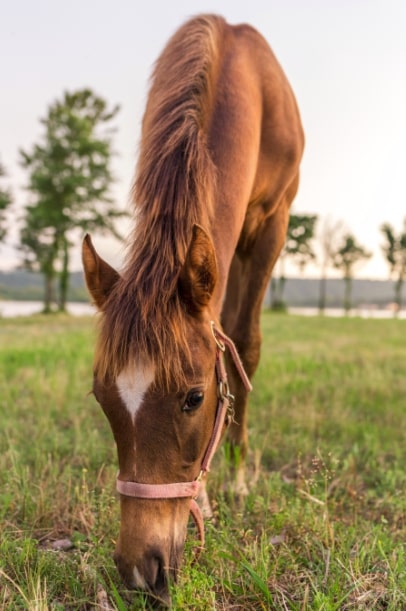Consistency is really important with horses to ensure they are happy, healthy, and maintain their condition. Sudden changes can lead to various problems. Crucially, a big change in horse feed may lead to colic. With that in mind, what is the best course of action if you need to change abruptly? Let’s have a closer look so you can make a good decision.
Disruption
Horses love a routine and can respond poorly to changes. Sadly, there can be situations that are out of your control. For example, producers may have had issues and be unable to supply their usual product on time. Or, there could be something even more serious like natural disasters. It could delay shipments of products for a long time.
While the situation may sound alarming, it’s best to stay calm and approach it carefully. Most importantly, keep in mind that as long as your horse is in a good condition at the moment, preferably with a BCS (body condition score) of 5 or higher, a few weeks of disruption won’t be disastrous. It takes around 45kg of weight loss to lose a point of BCS, so with careful food management, this should not happen.
Forage only
If the disruption means you don’t have your usual grain horse feed, a forage only diet can be perfectly fine for the meantime in many cases. The key is to ensure there is enough forage to meet maintenance targets.
The best thing to keep in mind here is a few days or even weeks on a forage only diet won’t lead to many problems. Horses can handle a reduction in grain without a huge impact on the microbial gut population.
Different grain
If feeding a horse forage only is not a viable option, you can change to a different type of grain. There are couple of key situations when this is the best option. For example, if you are dealing with horses that already have a BCS lower than 5, you’ll likely want to avoid additional weight loss. Horses with dental problems are also more prone to weight loss if you make sudden changes.
You need to be careful if you do decide to change grain. It will affect the microbial gut population, so could lead to health problems. Making the changes to horse feed gradually is the best way to minimise this, providing more time for adjustment.
There are two different strategies you can try here. Firstly, if you have some of your usual grain available, you can introduce a new one slowly. Start by introducing 25% new for a couple of days. Then do 50% for a couple more before moving up to 75%. By day 7 you can move to 100% new grain. This is the best way to help horses adapt.
If you don’t have enough of the usual grain to do the method above, it’s better to start slow with smaller portions of a new product. You can do it similarly to above, starting with a 25% portion and moving up to 100% over a week. It will make the adjustment easier. Keep in mind there can be some weight loss here, but it shouldn’t be significant.
Ordering high quality horse feed
Maintaining the health and wellbeing of horses is vital, even if there is a disruption in supplies. You need to think carefully about what to do and how to minimise potential issues, especially health problems, if you don’t have access to your usual feeds. Hopefully the advice here helps if you ever need to make emergency changes.
JS Hubbuck Ltd supplies some fantastic horse feed and works hard to ensure clients can consistently get the products they want. You can rely on us to provide quality goods and the best level of service. So, get in touch today and learn more about what we have in stock.

